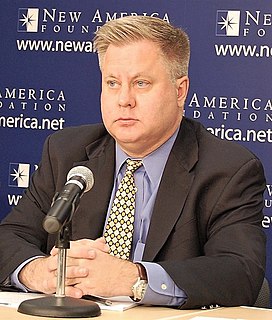A Quote by David Simon
I'd love if people relearned the lessons of the 20th century all over again. Which is to say this country progressed economically and socially when we had a better balance between capital and labor. Neither capital or labor won every argument. The battle between the two created economic tension, and transformed the working class into the middle class, and grew the economy.
Related Quotes
Thus, the capital owner is not a parasite or a rentier but a worker - a capital worker. A distinction between labor work and capital work suggests the lines along which we could develop economic institutions capable of dealing with increasingly capital-intensive production, as our present institutions cannot.
The organized labor movement as it is constituted today is as much a concomitant of a capitalist economy as is capital. Organized labor is predicated upon the basic premise of collective bargaining between employers and employees. This premise can obtain only for an employer-employee type of society. If the labor movement is to maintain its own identity and security, it must of necessity protect that kind of society.


































